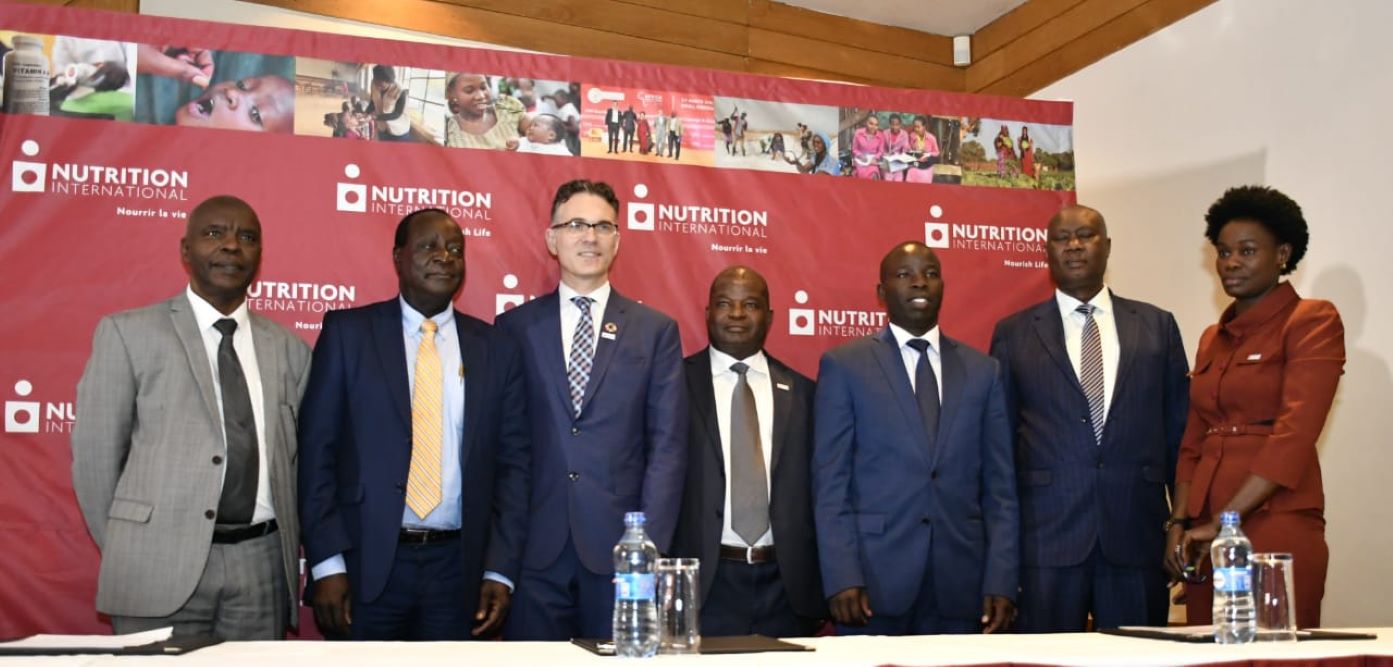Field Story
Ten must see global nutrition stories from 2023
December 18, 2023
County governments in Kenya commit to increase resources for nutrition
At a Nutrition Financing Workshop on February 4th, four Kenyan county governments signed agreements with Nutrition International, committing to increase domestic resources for nutrition programs.
Posted on March 27, 2020

Nairobi, KENYA – At a Nutrition Financing Workshop on February 4th, four Kenyan county governments signed agreements with Nutrition International, committing to increase domestic resources for nutrition programs. Governors from Busia, Vihiga, Nandi and Makueni counties signed the agreements following the launch of their County Nutrition Action Plans (CNAPs) in November.
Nutrition International worked closely with the national government to develop the Kenya Nutrition Action Plan (KNAP) 2018-2022, which identifies priority actions and associated costs for the country to address malnutrition. But, as programs are implemented at the county level, there was a clear need to work more directly with counties to ensure they could deliver these programs effectively to the community.
In 2016 and 2017, Nutrition International engaged county leaders in discussions around requirements and necessary support to begin, or improve, planning, costing and budgeting for nutrition. The need for counties to mobilize their own resources to achieve these targets was central to these conversations. Nutrition International committed to support at least 16 counties to develop their own nutrition action plans: Kajiado, Nakuru, Bomet, Kiambu, Murang’a, Nandi, Elgeyo Marakwet, Vihiga, Busia, Nyeri, Narok, Nairobi, Tharaka Nithi, Makueni, Embu and Kwale.
In November 2019, Busia, Vihiga, Nandi and Makueni counties launched their County Nutrition Action Plans 2019-2023. The CNAPs are designed to help implement local nutrition interventions in order to achieve the goal of the KNAP to “achieve optimal nutrition for a healthier and better quality of life and improved productivity for the country’s accelerated social and economic growth.”
Following the launch of the CNAPs, Nutrition International engaged the leadership of the four counties in a discussion of how to mobilize resources to implement the plans. The counties made commitments to increase funding to nutrition above the baseline and to work through existing county financial systems.
“We listened to leaders from Busia, Vihiga, Nandi and Makueni counties, and began to build a new model that would address their needs,” said Joel Spicer, president and CEO of Nutrition International, at the nutrition financing workshop. “These efforts produced the CNAPs that translate the national nutrition plan to the county level, focusing on priority interventions and implementation. Together, we’re bridging the technical, financial and political while remaining focused on the most important part of the equation: people.”
The resource mobilization agreements support the implementation of the CNAPs, ensuring county ownership, financial sustainability and predictability. The agreements guarantee additional domestic resources for low-cost, high-impact interventions and increase donor confidence in the county’s system.
“I thank counties for working with us to develop this new performance-based model,” said Martha Nyagaya, Nutrition International’s country director for Kenya. “For the first time, we have established baseline levels for funding of key nutrition interventions.”
At the end of the workshop, leadership from six additional counties – Bomet, Embu, Kajiado, Kiambu, Murang’a and Nakuru – committed to work with Nutrition International to develop their own CNAPs and committed resources as they look to adopt the new nutrition financing model. Kajiado county’s CNAP was completed in March.
The Nutrition Financing Workshop was held in Nairobi and brought together various stakeholders, including representatives from Nutrition International, Global Affairs Canada, the UK’s Department for International Development, and national and county ministries.